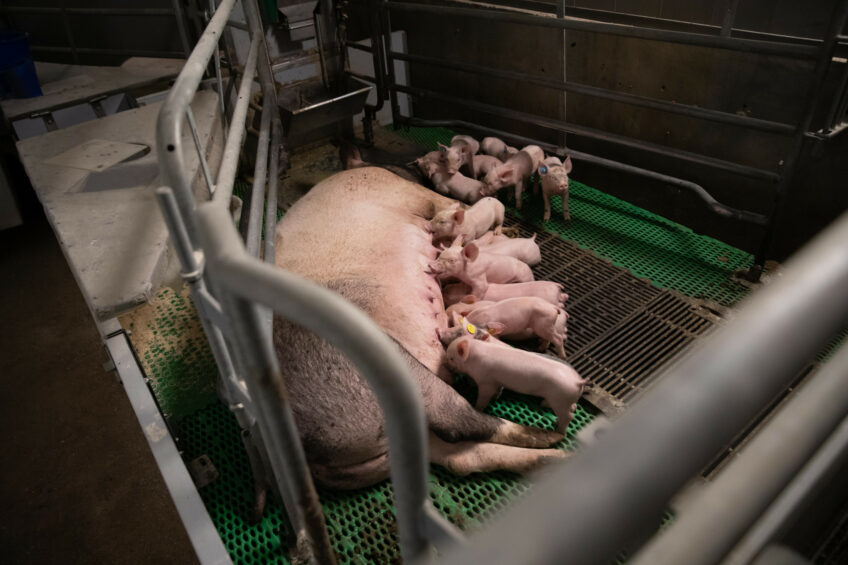What is the impact of maternal parity on a weaner’s gut microbiota?

A team of American researchers assessed the effects of maternal parity on the development and composition of gut microbiota in piglets. They also tested their performance in response to a prebiotic. The researchers published about their findings in the Journal of Animal Science and Biotechnology.
Post-weaning stress affects the gut microbiota development of piglets, thus resulting in production and welfare challenges. These challenges disproportionately affect the offspring of primiparous sows compared to those of their multiparous counterparts. There is a lack of knowledge about potential interactions between parity and feed additives in the post-weaning period and their impact on gut microbiota.
About the study
The researchers used 96 mixed-parity crossbred sows and their offspring for this study. They transported piglets to a nursery facility at weaning and randomly assigned them to 1 of 3 dietary treatment groups:
- a commercial nursery diet including standard doses of zinc and copper;
- a diet with a 0.5% commercial prebiotic consisted of Aspergillus oryzae fermentation extract;
- a diet with 0.5% commercial prebiotic and standard doses of zinc and copper.
They recorded individual pig body weight and calculated the average daily gain and average daily feed intake. In addition, they collected vaginal and fecal samples from sows and piglets for DNA extraction and microbiota analyses.
Impact on growth performance
Piglets fed the commercial nursery diet with zinc and copper had the most weight gain throughout the nursery period. In addition, piglets born to multiparous sows showed more weight gain at the end of the nursery period when compared to offspring of primiparous sows. Multiparous sows had more pre-weaning mortalities compared to primiparous sows. However, the interaction between maternal parity and dietary treatment had no impact on growth performance of piglets. Furthermore, piglets fed only prebiotics had decreased average daily feed intake.
Impact on vaginal and gut microbiota
Maternal parity affected the sow gut microbiota at weaning but had limited influence on sow vaginal microbiota. Primiparous sows’ gut microbiotas showed greater microbial diversity compared to the gut microbiota of multiparous sows. The gut microbiota of piglets born to primiparous sows displayed significantly higher microbial diversity compared to multiparous offsprings post-weaning. Piglets fed prebiotic alone showed more diversity in gut microbiota compared to other dietary treatments with higher abundances of the genera Dialister, Acidaminococcus, Megasphaera, Lactobacillus, and Oribacterium. The interaction between maternal parity and dietary treatment affected piglet gut microbiota at weaning with diminishing effects over time.
The authors concluded that the development of nursery pig gut microbiota is shaped by maternal parity and potential interactions with the effects of Aspergillus oryzae fermentation extract combined with zinc and copper.











